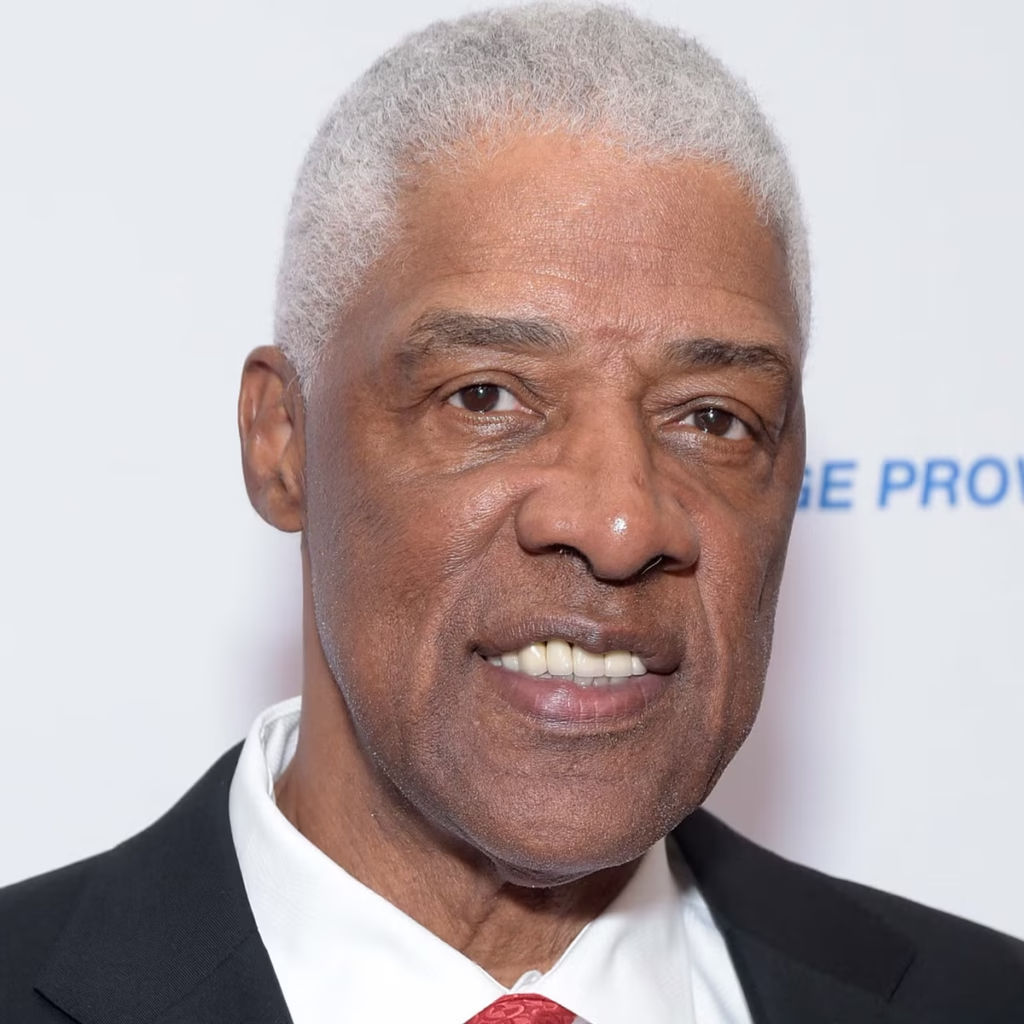
Table of Contents
Who Is Julius Erving?
Julius Erving, often referred to as “Dr. J,” is a basketball legend known for his exceptional talent, athleticism, and impact on the game. He helped lead the New York Nets to ABA championships in 1974 and 1976, before making the transition to the NBA with the Philadelphia 76ers. In 1983, Erving guided the 76ers to an NBA World Championship. Over the course of his 16-year professional career, which ended in 1987, he played in more than 800 games and averaged 22 points per game, leaving a lasting legacy in both the ABA and NBA.
Early Years
Born on February 22, 1950, in Roosevelt, New York, Julius Erving earned the nickname “Dr. J” during his high school years. While the exact origin of the name remains unclear, it is believed to have stemmed from a playful exchange with a friend who referred to Erving as “Professor.” Erving embraced the moniker, which stayed with him throughout his college and professional career. At Roosevelt High School, he showcased his talent, but it was at the University of Massachusetts that he truly began to shine. Despite limited recruitment from major basketball programs, Erving enrolled at UMass in 1968. In his two seasons at the school, he made an indelible mark, averaging 32.5 points and 20.2 rebounds per game—one of only five players at the time to achieve such a feat.
ABA Career
Erving’s professional journey began in 1971 when he left college and signed with the Virginia Squires of the American Basketball Association (ABA) as an undrafted free agent. His immediate impact was undeniable, as he averaged more than 27 points per game in his first season and earned spots on the All-ABA Second Team and the ABA All-Rookie Team. In a complicated turn of events during the 1972 offseason, Erving was selected 12th overall by the Milwaukee Bucks of the NBA, but instead signed with the Atlanta Hawks for their preseason workouts. The Squires successfully filed legal action to retain his services, and Erving returned to the ABA.
Continuing to be the league’s biggest star, Erving played for the Squires for one more season before joining the New York Nets. With the Nets, he led the team to ABA championships in 1974 and 1976, earning MVP honors in both years. His playing style was revolutionary—quick, athletic, and graceful—featuring dramatic jump shots, spins, and powerful slam dunks. In 1976, the final year of the ABA, Erving won the first-ever ABA Slam Dunk Contest, cementing his place as one of the game’s most electrifying players.
NBA Career
In 1976, when the ABA merged with the NBA, the financially struggling New Jersey Nets sold Julius Erving to the Philadelphia 76ers for $3 million. Erving’s arrival in Philadelphia marked a turning point for the team, as he helped transform them into consistent contenders.
In the 1976-77 season, the 76ers surged through the playoffs to reach the NBA Finals, though they fell to the Portland Trail Blazers in six games. After two consecutive years of making it to the NBA semi-finals, Erving led the 76ers back to the Finals in 1980, where they lost to the Los Angeles Lakers, led by rookie point guard Earvin “Magic” Johnson.
While the Lakers took the championship, Erving delivered the most memorable play of the series in Game 4. Gliding past defenders from one side of the hoop to the other, he executed a graceful underhand scoop shot, a move that became known as the “Baseline Move.” Magic Johnson later remarked, “My mouth just dropped open… I thought, ‘What should we do? Should we take the ball out or should we ask him to do it again?'”
Despite earning MVP honors in 1981, Erving was unable to lead his team back to the Finals due to a lack of supporting talent. However, in 1982, after another Finals loss to the Lakers, the 76ers revamped their roster by acquiring Houston Rockets center Moses Malone.
The 1982-83 season proved to be nearly perfect for Erving and the 76ers. With a 65-17 regular season record, the team dominated the playoffs, losing just one game and sweeping the Lakers in the Finals. Unfortunately, the following seasons were less successful as the team began transitioning to a younger roster, anchored by forward Charles Barkley. Erving retired after the 1986-87 season, having played over 800 games and earned 11 NBA All-Star selections. Over his career, including his time in the ABA, he scored more than 30,000 points.
In 1993, Erving was inducted into the Naismith Memorial Basketball Hall of Fame.
Post-Basketball Career
Since retiring from playing, Erving has remained connected to the basketball world, working as a sports analyst for NBC and serving as an executive for the Orlando Magic. Additionally, he has pursued various business ventures.
Erving is the father of eight children and married his second wife, Dorys Madden, in 2008. The couple has three children together.
